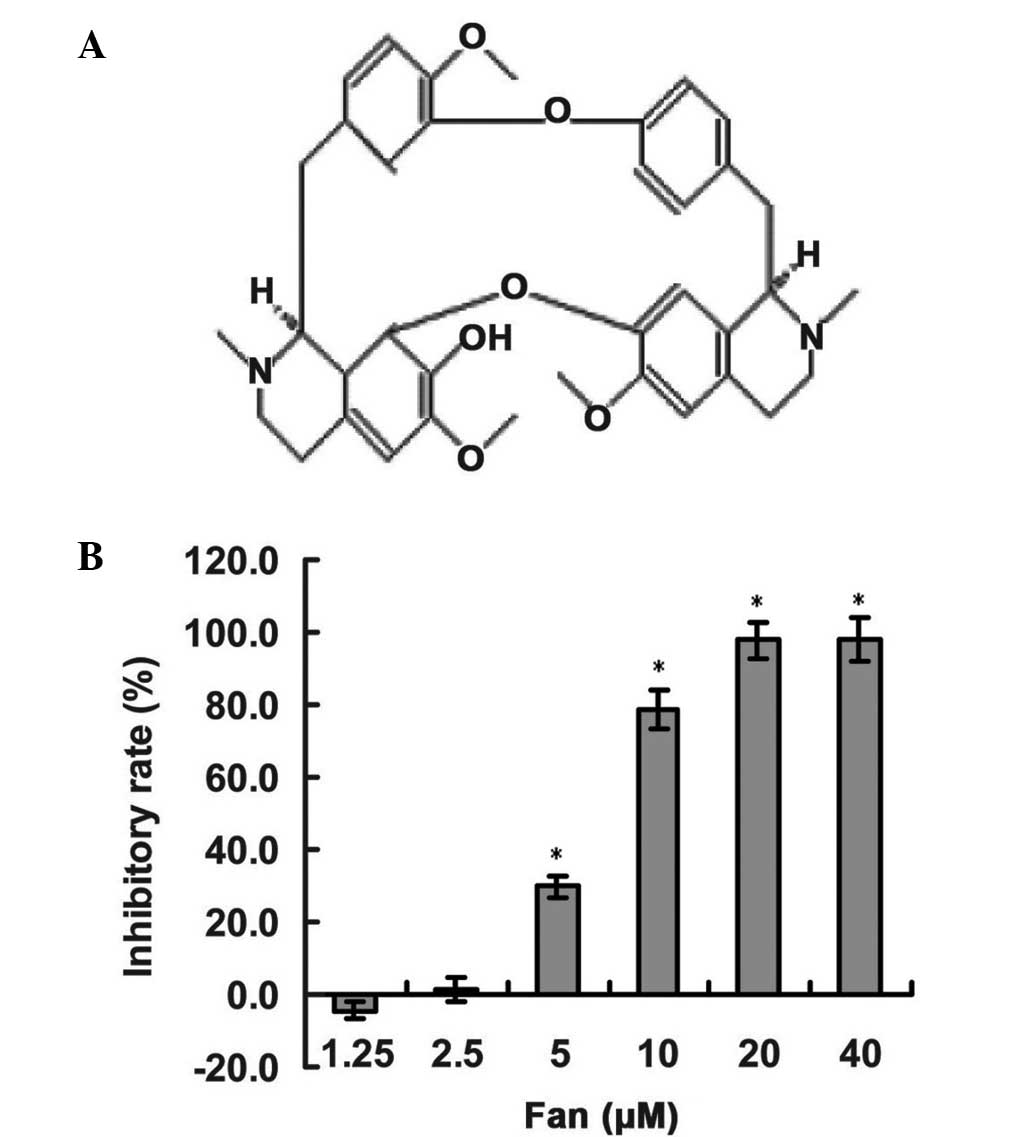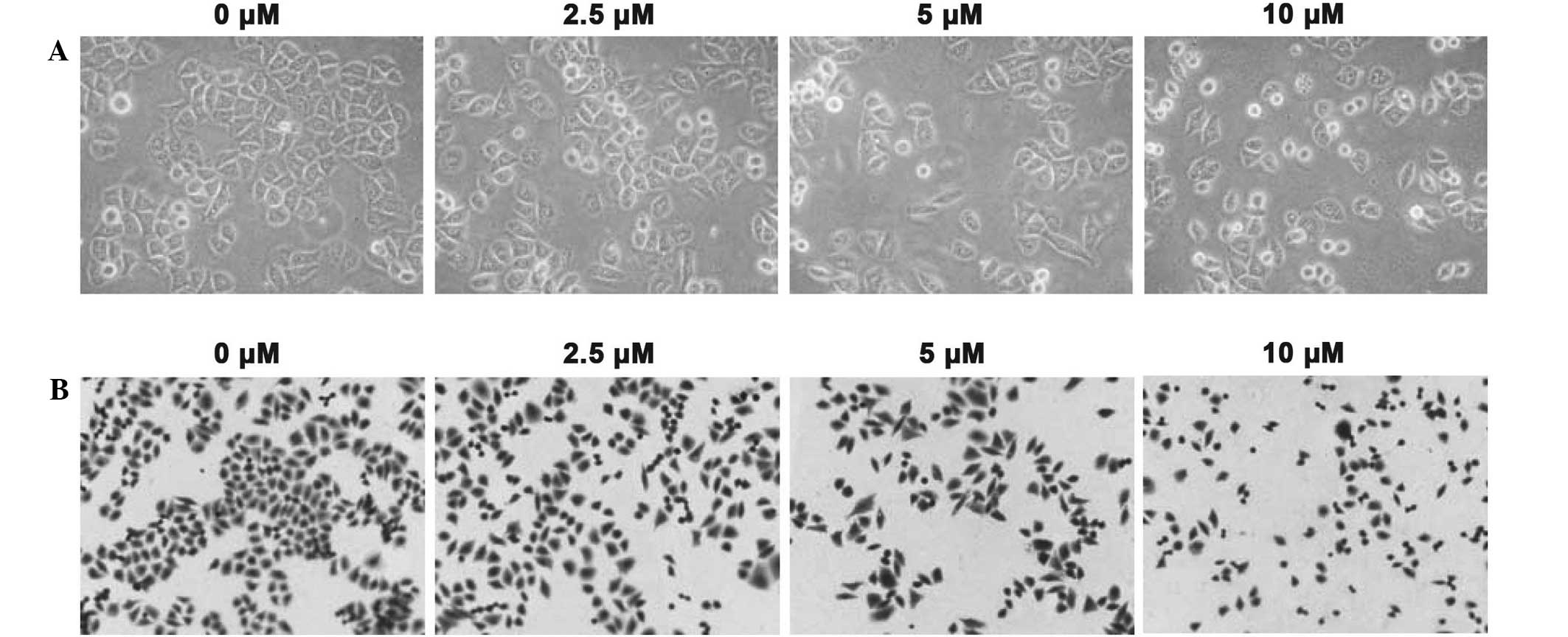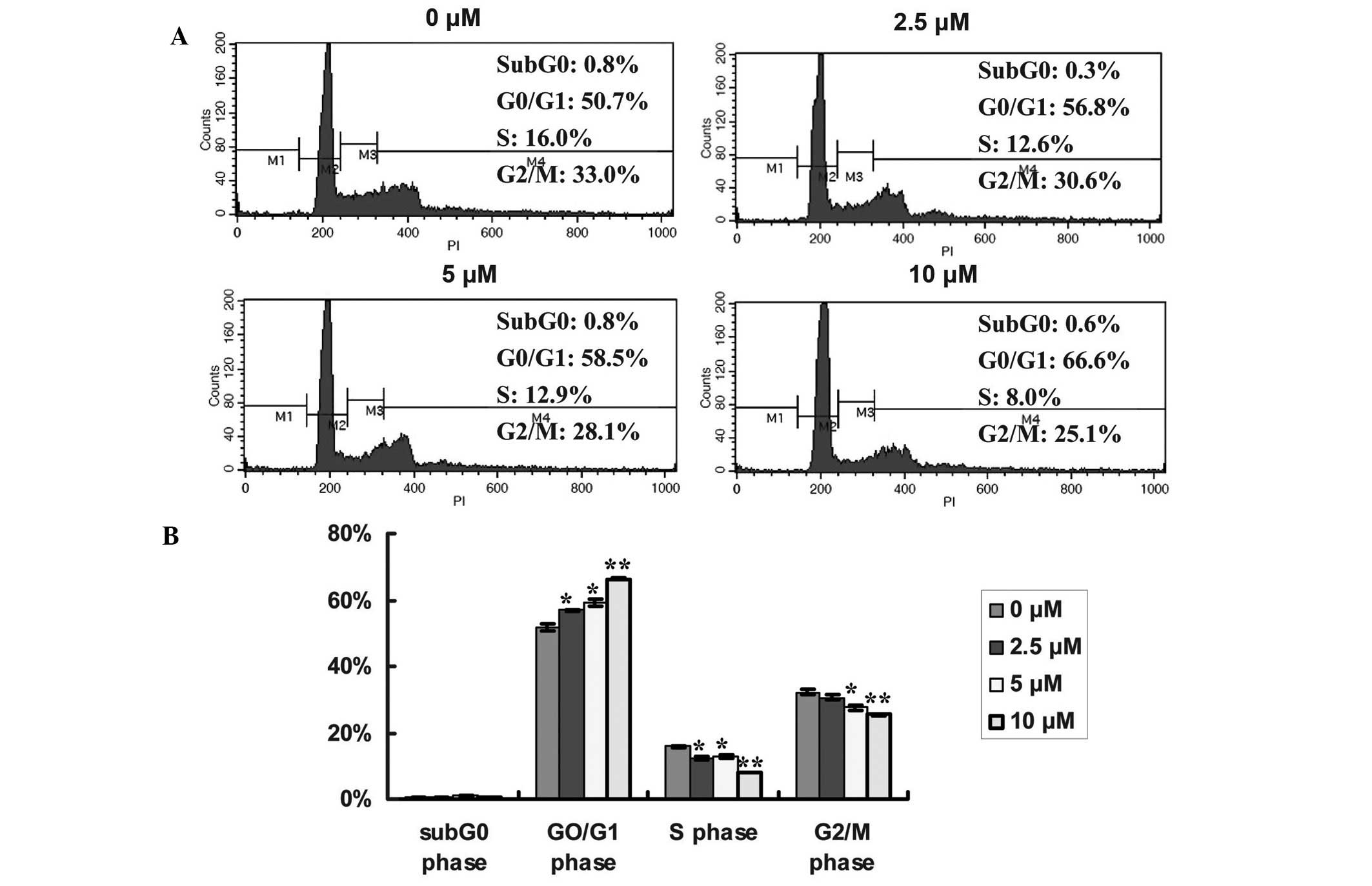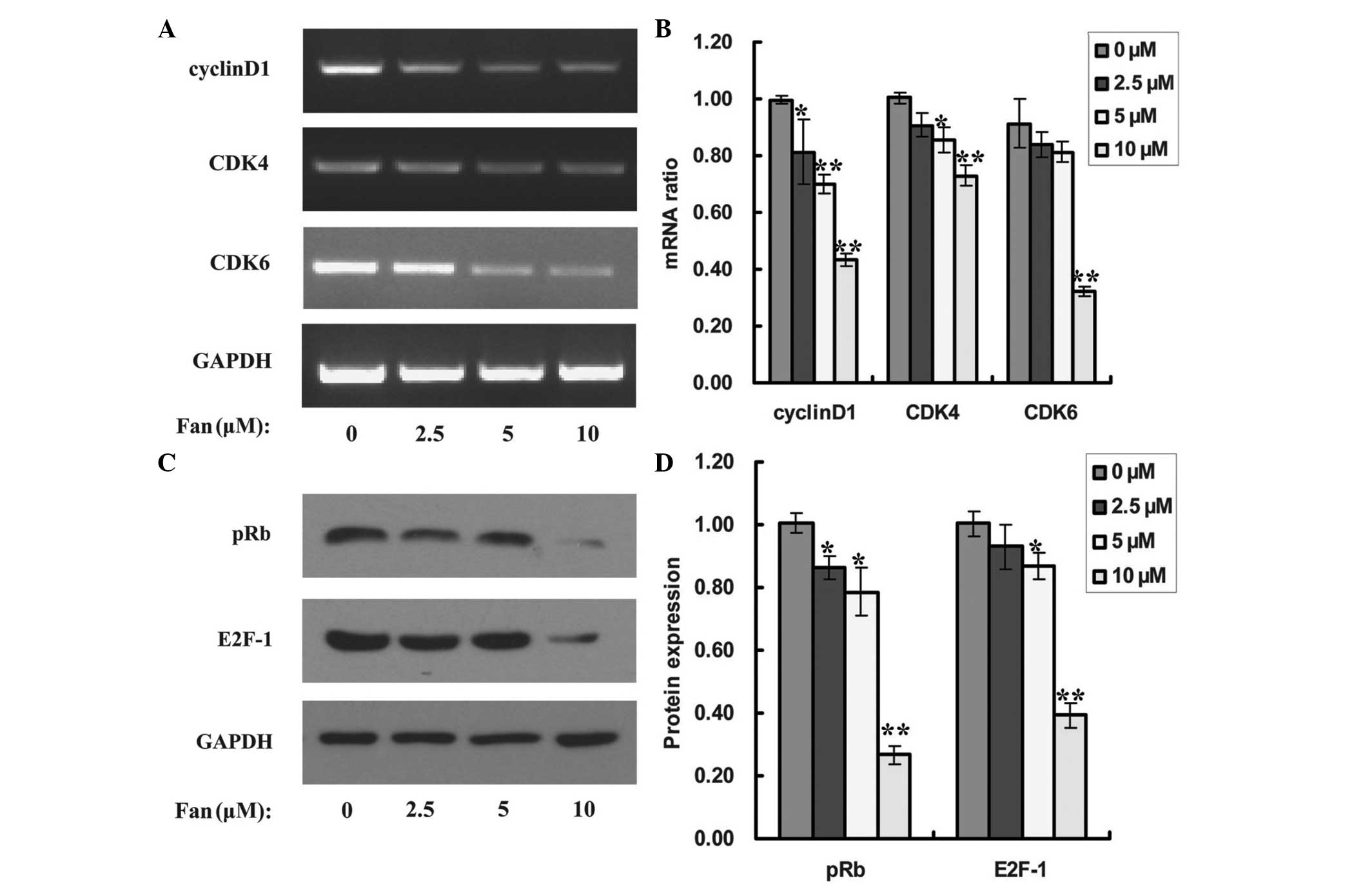|
1
|
Siegel R, Ward E, Brawley O and Jemal A:
Cancer statistics, 2011: The impact of eliminating socioeconomic
and racial disparities on premature cancer deaths. CA Cancer J
Clin. 61:212–236. 2011. View Article : Google Scholar : PubMed/NCBI
|
|
2
|
Mutlu H, Buyukcelik A, Aksahin A, Kibar M,
Cihan YB, Kaya E, Seyrek E, Yavuz S, Erden A, Calikusu Z, Aslan T
and Akca Z: Does sunlight exposure improve survival in patients
with non-small cell lung cancer? Asian Pac J Cancer Prev.
14:6301–6304. 2013. View Article : Google Scholar : PubMed/NCBI
|
|
3
|
Li SG, Chen HY, Ou-Yang CS, Wang XX, Yang
ZJ, Tong Y and Cho WC: The efficacy of Chinese herbal medicine as
an adjunctive therapy for advanced non-small cell lung cancer, A
systematic review and meta-analysis. Plos One. 8:e57604–e57615.
2013.
|
|
4
|
Nakamura K, Tsuchiya S, Sugimoto Y,
Sugimura Y and Yamada Y: Histamine release inhibition activity of
bisbenzylisoquinoline alkaloids. Planta Med. 58:505–508. 1992.
View Article : Google Scholar : PubMed/NCBI
|
|
5
|
Zhang YH, Fang LH and Ku BS: Fangchinoline
inhibits rat aortic vascular smooth muscle cell proliferation and
cell cycle progression through inhibition of ERK1/2 activation and
c-fos expression. Biochem Pharmacol. 66:1853–1860. 2003. View Article : Google Scholar : PubMed/NCBI
|
|
6
|
Sekiya N, Hikiami H, Yokoyama K, Kouta K,
Sakakibara I, Shimada Y and Terasawa K: Inhibitory effects of
Stephania tetrandra S. Histopathology. Biol Pharm Bull. 28:667–670.
2005. View Article : Google Scholar : PubMed/NCBI
|
|
7
|
Kim HS, Zhang YH, Oh KW and Ahn HY:
Vasodilating and hypotensive effects of fangchinoline and
tetrandrine on the rat aorta and the stroke-prone spontaneously
hypertensive rat. J Ethnopharmacol. 58:117–123. 1997. View Article : Google Scholar : PubMed/NCBI
|
|
8
|
Wang CD, Huang JG, Gao X, Li Y, Zhou SY,
Yan X, Zou A, Chang JL, Wang YS, Yang GX and He GY: Fangchinoline
induced G1/S arrest by modulating expression of p27, PCNA, and
cyclin D in human prostate carcinoma cancer PC3 cells and tumor
xenograft. Biosci Biotechnol Biochem. 74:488–493. 2010. View Article : Google Scholar : PubMed/NCBI
|
|
9
|
Xing ZB, Yao L, Zhang GQ, Zhang XY, Zhang
YX and Pang D: Fangchinoline inhibits breast adenocarcinoma
proliferation by inducing apoptosis. Chem Pharm Bull (Tokyo).
59:1476–1480. 2011. View Article : Google Scholar : PubMed/NCBI
|
|
10
|
Xing Z, Zhang Y, Zhang X, Yang Y, Ma Y and
Pang D: Fangchinoline induces G1 arrest in breast cancer cells
through cell-cycle regulation. Phytother Res. 27:1790–1794. 2013.
View Article : Google Scholar : PubMed/NCBI
|
|
11
|
Wang N, Pan W, Zhu M, Zhang M, Hao X,
Liang G and Feng Y: Fangchinoline induces autophagic cell death via
p53/sestrin2/AMPK signalling in human hepatocellular carcinoma
cells. Br J Pharmacol. 164(2b): 731–742. 2011. View Article : Google Scholar : PubMed/NCBI
|
|
12
|
Wang Y, Chen J, Wang L, Huang Y, Leng Y
and Wang G: Fangchinoline induces G0/G1 arrest by modulating the
expression of CDKN1A and CCND2 in K562 human chronic myelogenous
leukemia cells. Exp Ther Med. 5:1105–1112. 2013.PubMed/NCBI
|
|
13
|
Chiron D, Martin P, Di Liberto M, Huang X,
Ely S, Lannutti BJ, Leonard JP, Mason CE and Chen-Kiang S:
Induction of prolonged early G1 arrest by CDK4/CDK6 inhibition
reprograms lymphoma cells for durable PI3Kdelta inhibition through
PIK3IP1. Cell Cycle. 12:1892–1900. 2013. View Article : Google Scholar : PubMed/NCBI
|
|
14
|
Xu X, Zhang J, Han K, Zhang Z, Chen G,
Zhang J, Mao X and Cao B: Natural pesticide dihydrorotenone arrests
human plasma cancer cells at the G0/G1 phase of the cell cycle. J
Biochem Mol Toxicol. 28:232–238. 2014. View Article : Google Scholar : PubMed/NCBI
|
|
15
|
Lim S and Kaldis P: Cdks cyclins and CKIs:
Roles beyond cell cycle regulation. Development. 140:3079–3093.
2013. View Article : Google Scholar : PubMed/NCBI
|
|
16
|
Genovese C, Trani D, Caputi M and Claudio
PP: Cell cycle control and beyond, Emerging roles for the
retinoblastoma gene family. Oncogene. 25:5201–5209. 2006.
View Article : Google Scholar : PubMed/NCBI
|
|
17
|
Xu P, Jiang EJ, Wen SY and Lu DD:
Amentoflavone acts as a radioprotector for irradiated v79 cells by
regulating reactive oxygen species (ROS), cell cycle and
mitochondrial mass. Asian Pac J Cancer Prev. 15:7521–7526. 2014.
View Article : Google Scholar : PubMed/NCBI
|
|
18
|
Wang YX, Cai H, Jiang G, Zhou TB and Wu H:
Silibinin inhibits proliferation, induces apoptosis and causes cell
cycle arrest in human gastric cancer MGC803 cells via STAT3 pathway
inhibition. Asian Pac J Cancer Prev. 15:6791–6798. 2014. View Article : Google Scholar : PubMed/NCBI
|
|
19
|
Giacinti C and Giordano A: RB and cell
cycle progression. Oncogene. 25:5220–5227. 2006. View Article : Google Scholar : PubMed/NCBI
|
|
20
|
Blain SW: Switching cyclin D-Cdk4 kinase
activity on and off Cell Cycle. 7:892–898. 2008.PubMed/NCBI
|


















